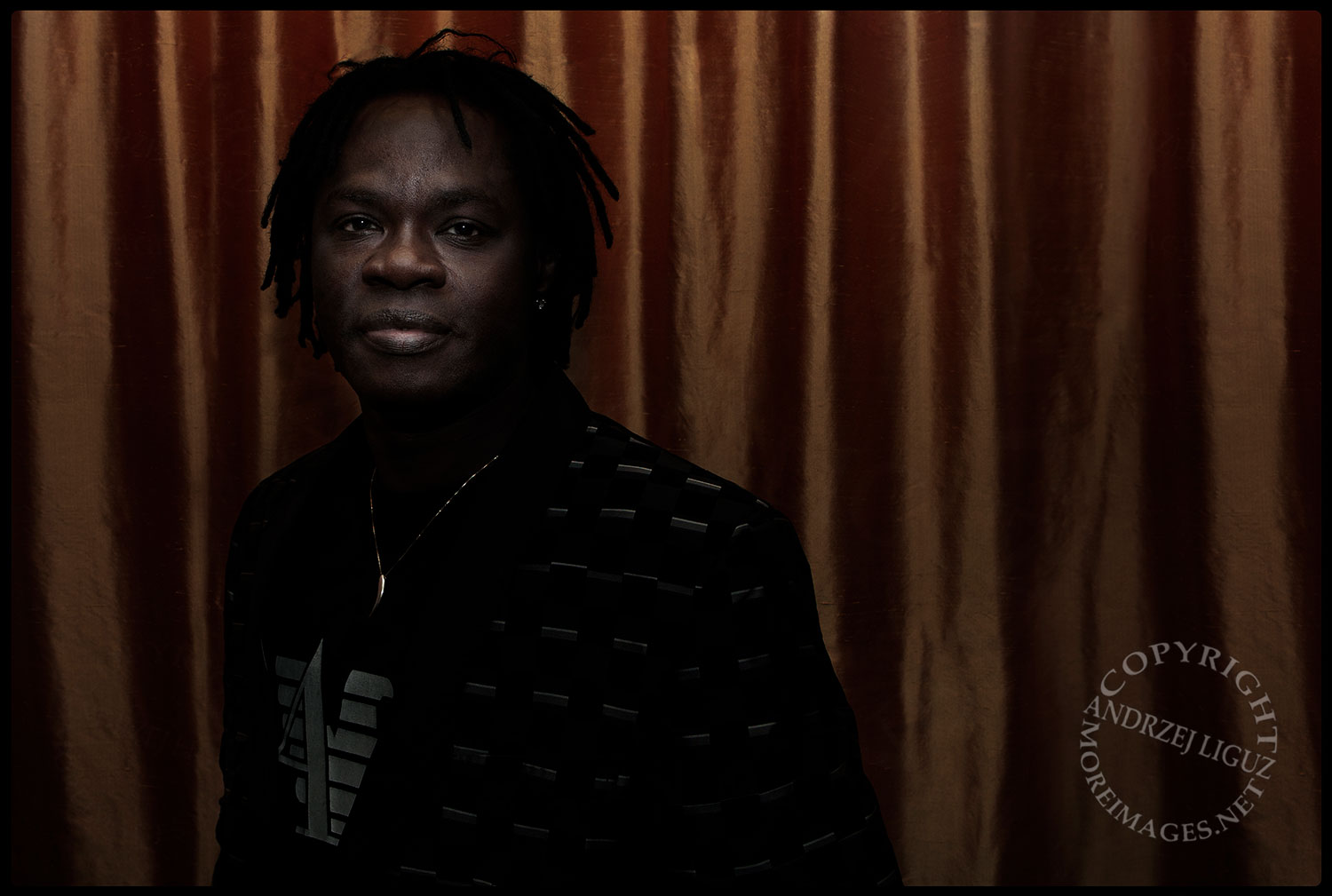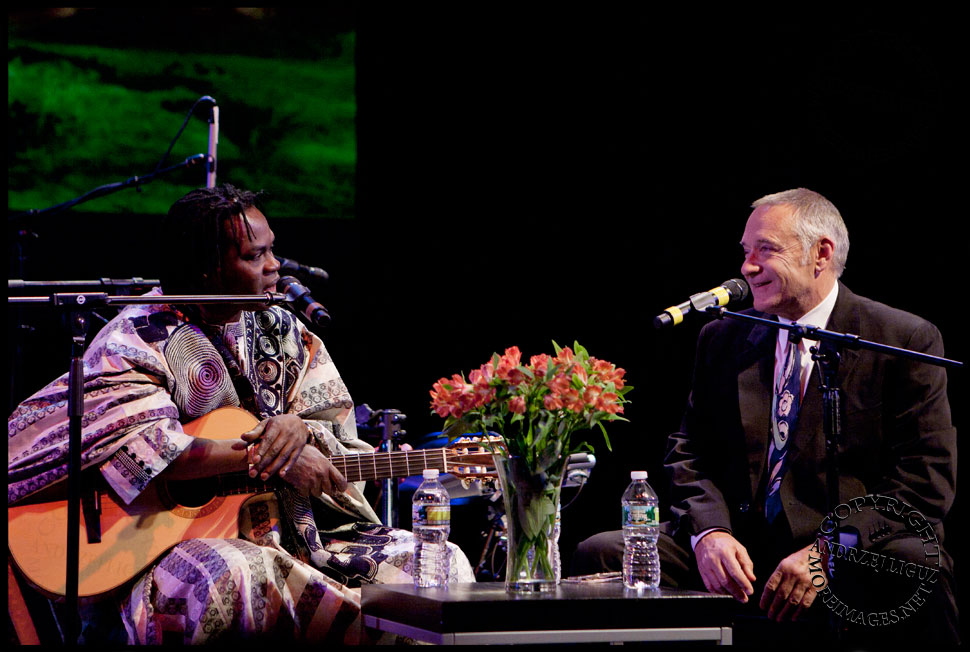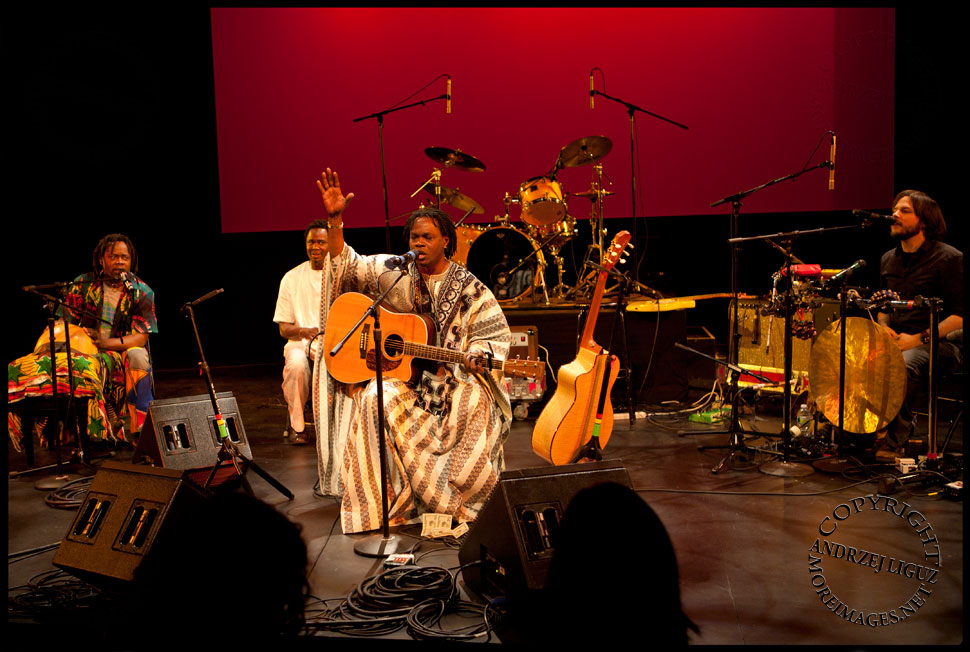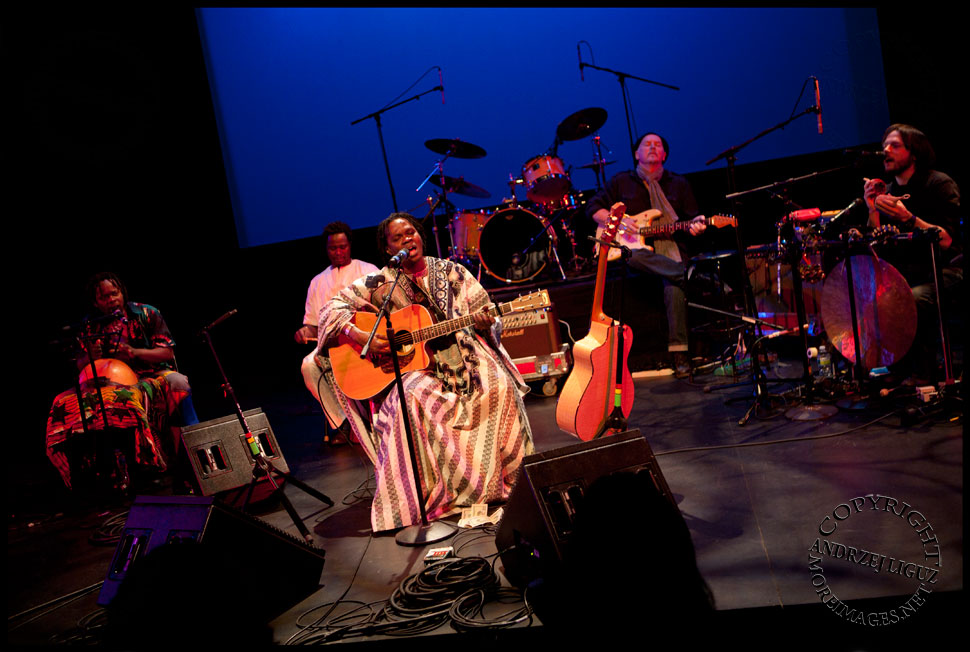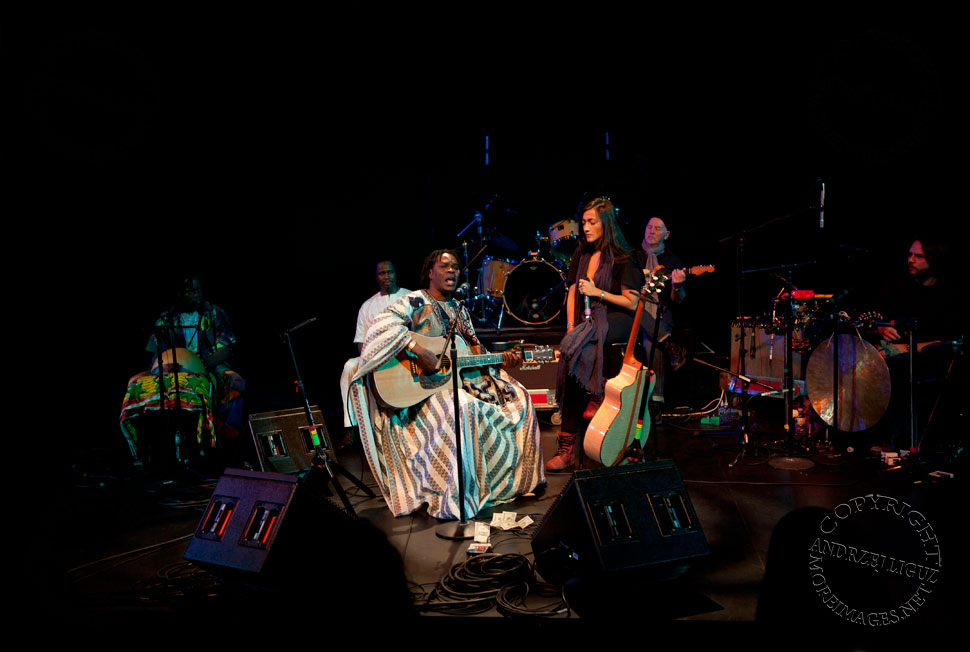I don’t know many musicians who would take a journalist on the road with them and agree to be interviewed on stage every night before playing a show. Two weeks ago I watched Baaba Maal discuss the state of Africa, womens rights and the world in general with respected music journalist and author Chris Salewicz.
Baaba Maal is obviously an extraordinary individual. He grew up in Senegal as the son of a fisherman and was never supposed to be a musician as his father wanted him to follow in his footsteps. However, his best friend, Mansour Seck (a West African griot or bard/storyteller), his mother and also his school headmaster had different ideas.
During his conversation with Chris he told the story of how he was discovered singing in Dakar by a local radio station who insisted that he go in and record for them every week. His popularity grew with each performance until there were large crowds outside the radio station for his shows and he was being played all over the country. His father didn’t know about this extra curricular activity and Baaba was seriously worried how his father would react if he heard him on the radio. One day when he was at home one of his songs came on the radio and his father asked if him if that was his voice on the radio. Baaba wasn’t sure how to respond, but he couldn’t lie so he told his father that was indeed his voice. His father told him he sounded good and gave his blessing for Baaba to pursue music as a career.
After studying music at Dakar University he moved to Paris for postgraduate studies and invited Mansour Seck to join him there, where they formed the band Daande Lenoi.
Baaba Maal soon started experimenting with fusing African rhythms together with western music and his influence in this area of music has been enormous. Following the 1994 release of ‘Firin’ In Fouta’ he is regarded as one of the founding fathers of ‘World Music’ and responsible for inspiring the formation of both Afro Celt Sound System (now one of the worlds leading ‘World Music’ bands) and Positive Black Soul (a group of rappers).
He has worked with a host of names including Thievery Corporation, Afro Celt Sound System, Brian Eno, Jon Hassell, The Brazilian Girls, Franz Ferdinand, the Magic Numbers and Manu Dibango as well as appearing on the 1 Giant Leap album and the Black Hawk Down soundtrack.
The 45 minute conversation with Chris Salewicz was humorous as well as illuminating. Chris used to be a staff writer for the NME during the glory years of 1974-81 and has subsequently written on music for many publications including The Sunday Times, The Independent, The Daily Telegraph, Q Magazine and Mojo magazine as well as writing well received biographies on Bob Marley and Joe Strummer. He was a suitable foil for the fishermans son who has been recognized around the world as a master musician and become Youth Emissary for the United Nation’s Development Program as well a strong supporter of Womens Rights and an outspoken critic of HIV/Aids policies in Africa.
The show he played afterwards was joyful and uplifting. It started very simply with him on guitar and then he was joined by his long standing percussionist Mamadou Starr and multi instrumentalist Jim Palmer, who also happens to be the son of the late Robert Palmer. His producer Barry Reynolds came on towards the end and a girl with a haunting voice was brought up from the audience to sing for a while as well.

Fan dancing after showering Baaba Maal with money © Andrzej Liguz/moreimages.net. Not to be used without permission.
The audience were on their feet dancing to the Talking Drums and many of the expatriate Senegalese who were there that night took the opportunity to throw money at the feet of Baaba Maal in the old African tradition of supporting their storytellers with cash.
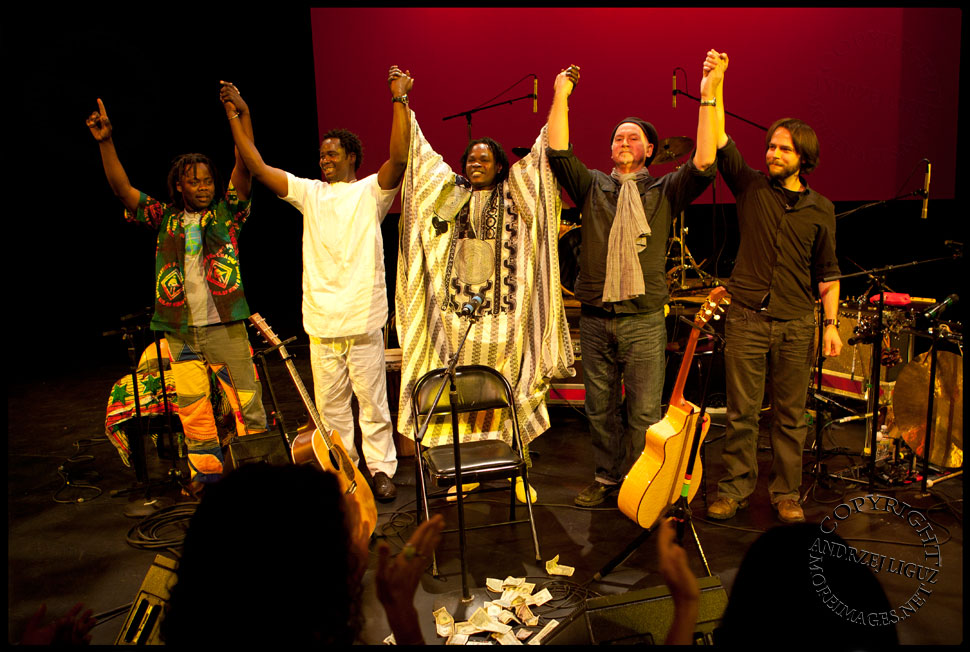
Baaba Maal and the band at the end of the show © Andrzej Liguz/moreimages.net. Not to be used without permission.
After the show I went back to catch up with Chris, who I’ve known for some years. I took some pictures of Baaba Maal meeting his adoring audience before doing a quick shoot with him and then they all left to go onto the next date on the tour.
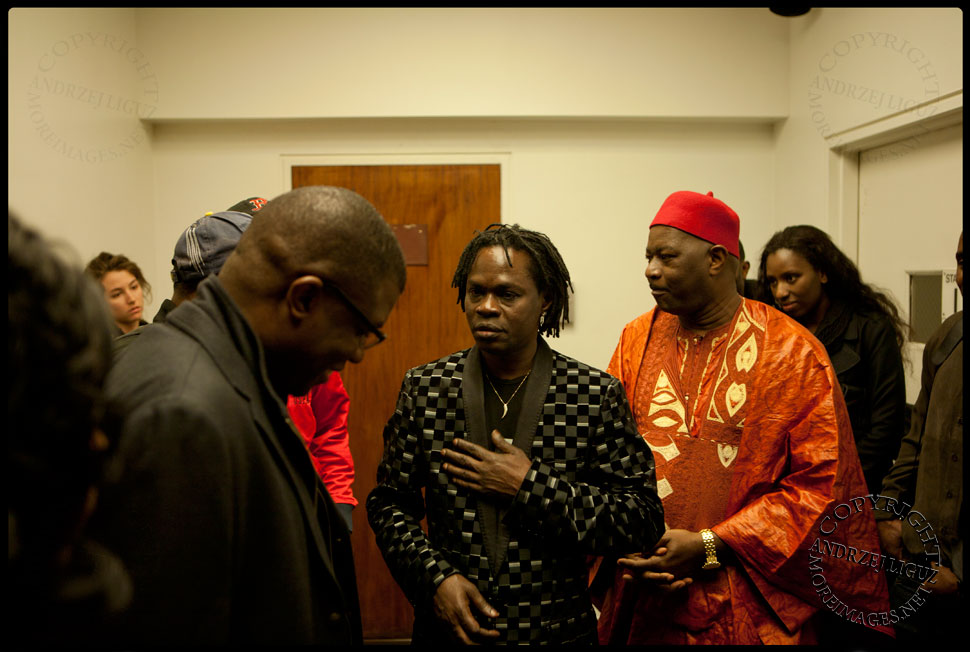
Baaba Maal meeting fans after the show © Andrzej Liguz/moreimages.net. Not to be used without permission.
Get hold of one of the many albums Baaba Maal has made and make a point of seeing this amazing artist the next time he comes to your town as its truly a treat to dance to the music he creates.
